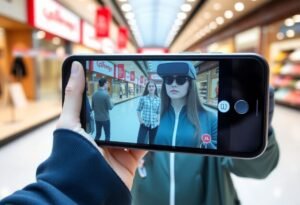Virtual reality (VR) is not just a trend; it is fundamentally transforming the tourism industry by enhancing the way travelers explore and experience destinations. As innovation drives this transformation, VR allows potential tourists to immerse themselves in environments far removed from their everyday lives, creating a powerful tool for engagement and decision-making.
Transforming Destination Marketing
One of the significant ways in which virtual reality is reshaping tourism is through destination marketing. Traditionally, marketing strategies relied heavily on images and videos; however, VR elevates this experience by enabling potential travelers to engage with locations virtually. Whether it’s a breathtaking beach or a bustling cityscape, travelers can immerse themselves in a destination before booking a trip. This immersive experience not only boosts engagement but also influences travel decisions positively, with studies indicating that interactive experiences lead to a 35% increase in customer interest.
Enhancing Travel Planning
Before deciding on a vacation spot, travelers can explore different locations using VR, ensuring they choose the best fit for their preferences and needs. By providing an immersive glimpse into various destinations, VR simplifies the decision-making process. Virtual reality experiences integrated into travel booking sites enable customers to visualize their experiences, enhancing confidence in travel choices. Travel agencies are already utilizing VR headsets to showcase vacation packages, increasing conversions significantly as customers feel they have gotten a taste of their potential adventure.
Personalized Travel Experiences
Using artificial intelligence in conjunction with VR further personalizes travel experiences for tourists. Innovative technology allows for tailored itineraries based on user preferences, historical data, and real-time analytics. VR can display customized experiences that feel personal and unique, leading travelers to feel more connected to their destinations. From guided tours that are adjusted to user interests to interactive cultural experiences, virtual reality brings forth a new level of personalization that travelers increasingly value today.
Reducing Travel Anxiety
For many, the prospect of travel can induce anxiety. This is where virtual reality simulations play a crucial role. By providing previews of travel experiences, potential tourists can familiarize themselves with airports, hotels, and activity locations, easing concerns about the unknown. These virtual tours help to demystify the travel process, allowing clients to plan their journeys with a better understanding of what to expect. In fact, many travel firms have begun offering virtual previews as part of their booking process to ensure travelers have all the information they need.
Fostering Sustainable Tourism
With increasing discussions surrounding the environmental impact of travel, VR also plays a vital role in promoting sustainable tourism practices. By offering virtual tours of popular destinations, travel companies can reduce the need for physical travel, thereby lessening carbon footprints. This innovative use of VR not only attracts eco-conscious travelers but also serves as a platform for educating potential visitors on responsible travel practices. As sustainability becomes integral to tourism, VR can guide the industry towards a more conscientious future.
Enhancing Post-Travel Engagement
Even after the trip, VR continues to foster engagement, with travelers sharing their immersive experiences through social media platforms. This digital storytelling transforms their personal narratives into compelling promotional tools for destinations. By showcasing their adventures, tourists can inspire others to explore, creating a cycle of interest that relies heavily on virtual experiences. Furthermore, destinations are encouraged to maintain ongoing VR initiatives, offering returning visitors a new way to experience their surroundings with each visit, reinforcing brand loyalty.
Disclaimer: This article is for informational purposes only and does not constitute professional travel advice. Always consult with travel professionals before making arrangements.





















